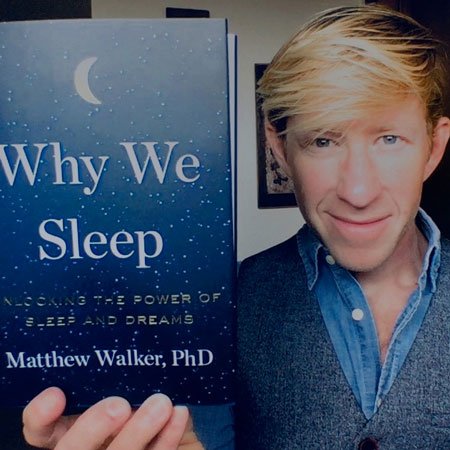The Power of Sleep: Unlocking Health, Performance, and Happiness
This month, we're diving deep into one of the most overlooked yet crucial pillars of health: SLEEP. As part of our five key factors to health and happiness—Eat, Sleep, Move, Think, and Connect—getting quality rest is essential for both physical and mental well-being.
We often focus on what we eat and how we train, but how often do we prioritize sleep? Despite its fundamental role in recovery, performance, and decision-making, sleep frequently takes a backseat to busy schedules and modern distractions. Yet, research continues to confirm that quality sleep is one of the most impactful factors influencing our overall health and performance.
Sleep and Performance: The Science Speaks
Studies have shown that sleep deprivation significantly affects brain function, particularly in areas responsible for decision-making and self-control. Matthew Walker, a leading expert in sleep science, explains that when we don’t get enough sleep, our higher brain functions—responsible for judgment, focus, and rational decision-making—are impaired, while primal urges and cravings are amplified. This explains why sleep-deprived individuals often make poor dietary choices and struggle with motivation.
In his eye-opening conversation with Joe Rogan (watch it HERE), Walker dispels common myths about sleep and shares strategies for improving sleep hygiene. His insights highlight the direct correlation between sleep, cognitive function, mood, and overall physical health.
“High-level brain regions required for complex judgments and decisions become blunted by a lack of sleep, while more primal brain structures that control motivation and desire are amplified”
For those striving to optimize their health and performance, prioritizing sleep is non-negotiable. Whether you're pushing yourself in the gym, at work, or in everyday life, inadequate sleep leads to diminished energy, increased risk of injury, and hindered progress.
The Impact of Sleep on Health and Well-being
Beyond its effects on physical performance, sleep plays a vital role in mental and emotional well-being. A consistent sleep schedule helps regulate mood, reduce stress, and improve overall happiness. Conversely, chronic sleep deprivation can lead to heightened stress levels, increased anxiety, and reduced resilience to daily challenges.
Moreover, sleep directly influences our ability to maintain a healthy diet. When we're tired, the brain craves quick sources of energy—often in the form of processed, high-sugar foods. Over time, this can derail efforts to maintain a balanced and nutritious diet, contributing to long-term health issues.
Taking Control of Your Sleep
Improving sleep quality doesn’t require drastic lifestyle changes. Small, consistent habits can make a significant difference. Whether it's through better sleep hygiene, experimenting with different bedtime routines, or leveraging educational resources like Matthew Walker’s Masterclass, there are plenty of ways to take control of your rest.
So where do you start? Try committing to 7-9 hours of sleep per night for the next four weeks and track how you feel. Do you wake up feeling more refreshed? Do you notice improvements in your workouts, energy levels, or focus?
The Power of Tracking Sleep
One of the easiest ways to improve sleep is by tracking your patterns. Just like logging nutrition or workout performance, monitoring sleep can reveal trends and areas for improvement. Wearable technology—such as watches, bands, and rings—can provide insights into sleep duration, quality, and recovery trends.
Keep in mind that these devices aren’t 100% accurate, but they can help identify patterns that influence your sleep quality. Many also track Heart Rate Variability (HRV), resting heart rate, and sleep cycles, offering valuable data for optimizing recovery.
Personally, I’ve been tracking my sleep since 2018 using an Apple Watch in combination with apps like SleepWatch and Athlytic. While I can usually tell when I’ve had a bad night’s sleep, tracking trends over time has helped me understand how factors like training load, stress, and nutrition impact my recovery.
Ready to Improve Your Sleep?
Whether your goal is to feel more energized, enhance your performance, or simply avoid that mid-afternoon slump, prioritizing sleep is one of the best things you can do for yourself.
Try tracking your sleep for a few months and experiment with different strategies to see what works best for you. The impact could be game-changing—not just in your workouts, but in your overall health and well-being.
So what do you have to lose? Give it a shot and see how better sleep can transform your daily life!








